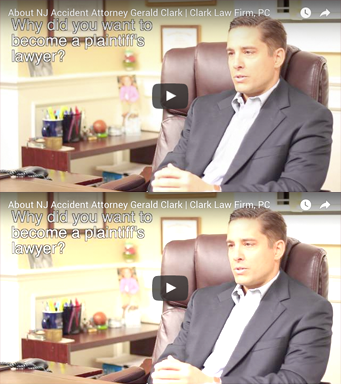I Got PTSD from a Workplace Incident; Do I Quality for Worker’s Compensation?
After a trauma or life threatening event, many people experience a wide variety of reactions from that event. These can include upsetting memories of the incident, increased uneasiness, or trouble sleeping, which can develop into posttraumatic stress disorder (PTSD). While this commonly occurs in veterans who have been experienced combat, PTSD can happen after any scary or shocking event where you feel that your life or the lives of others are in danger. About 60% of men and 50% of women experience at least on trauma in their life, however this does not mean that every person who goes through a trauma gets PTSD. It is estimated that about 7-8% of the U.S. population will developed PTSD at some point, and at any given time 5.2 million adults have PTSD. Women are twice as likely to develop PTSD as men are, and among servicemen and servicewomen, about 30% of veterans who have spent time in war zones will experience PTS at some point. It is more likely that you will develop PTSD if you were directly exposed to the trauma, went through a long lasting trauma, were seriously hurt, believed you or a family member was in danger, or have had a recent, stressful life change[1]. PTSD takes time to appear, and symptoms may start months or years after the traumatic event.
PTSD only came into recognition in the past 30 years, beginning with soldiers returning from the Vietnam War. While New Jersey Workers’ Compensation claims are most commonly associated with physical injuries, benefits can also be claimed for injuries to mental health, including but not limited to workers suffering from PTSD. Generally speaking, an injury is compensable under workers’ compensation if the employee can prove that the work or work environment caused it, and this requirement does not distinguish between mental and physical injuries[2]. Workers’ compensation benefits are available to all workers, with a few limited exceptions, for injuries that arose out of the normal course of employment and happened while an employee was at work.
A worker could claim workers’ compensation benefits from PTSD that develops from a workplace incident as long as it can be proven that the PTSD was causally related to the primary injury, and that primary injury made the employee eligible for Workers’ Compensation benefits[3]. Because of the ongoing challenge that PTSD presents, some employers have begun to take proactive roles to help employees identify and prevent PTSD early on. While PTSD can be compensable under Workers’ Compensation, it can be difficult to prove the connection between the stress and the workplace. This can be difficult because PTSD is not as easy to identify through observation and medical testing, and only rears its ugly head when the employee is confronted with some type of trauma. This makes PTSD more difficult to identify and prevent than other medical ailments, such as hypertension or diabetes. PTSD can also have a subjective component, which makes it similar to other mental injuries that can also be difficult to identify.
There are five objective elements that must be fulfilled for a worker’s mental condition to be compensable in New Jersey[4]. It is required that 1) the working conditions were stressful; 2) the evidence leads to the conclusion that the worker reacted to them as stressful; 3) the objectively stressful working conditions must be peculiar to that particular work place, 4) there must be a medical opinion of the psychiatric disability, and 5) the workplace exposure must have been a cause of the disability. All five of these factors must be fulfilled for an award of workers’ compensation benefits.
The difficulty of proving that PTSD is related to a workplace injury was illustrated in a recent case, in which a tenured professor and college administrator was denied workers’ compensation benefits for her failure to connect her PTSD to the workplace[5]. That employee was spoken to harshly by a supervisor, which took place in the employee’s office where the director blocked the only entrance. The employee felt trapped, and filed a workers’ compensation claim alleging PTSD and other psychological injuries. She also stated that her brother had sexually abused her as a child, trapping her in a closet, memories of which were evoked when the director blocked the entrance to the office. While the court sympathized with the employee’s psychological trauma, they determined that the true source of the disability was the problems from her childhood and not a product of the work environment. Since the incident did not cause the disability and only triggered it, there was no basis for compensation.
It is possible to qualify for workers’ compensation benefits after getting PTSD from a workplace incident, however it might be difficult to prove this. If you experienced a traumatic incident in the work place and then developed PTSD, please do not hesitate to contact the New Jersey Lawyers for workers’ compensation at the Clark Law Firm, P.C., for a consultation. Our personal injury attorneys are well versed in workers’ compensation law, and will guide you through this tough time to ensure that you receive all of the benefits and compensation to which you are entitled.
[1] http://www.ptsd.va.gov/public/PTSD-overview/basics/how-common-is-ptsd.asp
[2] http://www.cga.ct.gov/2004/rpt/2004-R-0564.htm
[4] Goyden v. State of New Jersey, 256 N.J. Super. 438, 4450446 (App. Div. 1991), aff’d, 128 N.J. 54 (1992)
[5] Rizzo v. Kean University, 2014 N.J. Super. Unpub. LEXIS 1358 (June 11, 2014)

